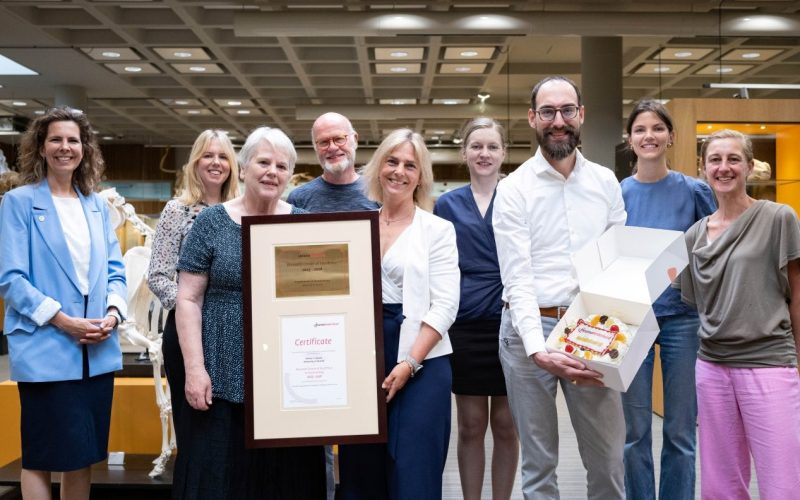ReumaNederland is making €500,000 available to Utrecht University, UMC Utrecht and Radboudumc for follow-up research into a vaccine against rheumatoid arthritis. Such a vaccine should ‘re-educate’ the immune system, so that no more of the body’s own joint tissue is damaged as happens in patients with rheumatoid arthritis. This research is part of a so-called ‘long-term program line’ of ReumaNederland.
The research is being conducted under the direction of Prof. Dr. Femke Broere (Utrecht University). “We are extremely happy with this award and the Research Centre of Excellence designation,” says Broere. “ReumaNederland provides us confidence and a long-term investment in the development of a vaccine against inflammatory rheumatoid arthritis.” Earlier, this project was also awarded half a million by ReumaNederland for its collaboration with Prof. Dr. Jaap van Laar (Department of Rheumatology and Clinical Immunology, UMC Utrecht).
Great progress has been made in the treatment of rheumatoid arthritis (RA) in recent years. Yet no form of RA can be cured at present. Moreover, existing treatments sometimes suppress only part of the symptoms and sometimes have little effect on symptoms such as extreme fatigue and pain.
“We are aiming for a permanent cure without additional medication. That’s the challenge,” says Broere, who is a professor of Translational Immunology at the Faculty of Veterinary Medicine. “We are developing special vaccines to ensure that the body itself can inhibit rheumatoid arthritis without the need for lifelong medication. This is called tolerogenic vaccination. In recent decades, our research has led to a candidate vaccine consisting of cells from the patient himself, so-called tolerogenic dendritic cells.”
The vaccine is now being investigated in the first patients in a clinical trial. This is done in a collaboration with colleagues at UMC Utrecht and Radboudumc. In Nijmegen, the required dendritic cells are being cultured by Prof. Dr. Jolanda de Vries (Department of Tumor Immunology, Radboudumc). In Utrecht, a clinical trial is taking place under the supervision of Jaap van Laar. Van Laar: “We have now treated seven people to test the safety and feasibility. Studying the immune response to this vaccine in detail gives us the opportunity to develop new tests that will make it easier to measure the effect of therapeutic vaccination against rheumatoid arthritis in the future.” This fall, the researchers expect the first results when the first nine patients with RA have been treated.
Broere: “In addition, the follow-up research will focus on new vaccines consisting of nanoparticles. This is because the current cell-based vaccine has to be made separately for each individual patient and is therefore very expensive. Vaccines from nanoparticles can be made on a large scale and are therefore accessible to more people. Using blood samples from patients with rheumatoid arthritis, we will explore how medication affects the efficacy of the vaccines.”
Jan-Willem Förch of ReumaNederland said, “Femke Broere’s long-term research program is one of 15 projects that have received an award from ReumaNederland and the Research Centre of Excellence designation. A total of €7.5 million has been made available for this for the next five years. With the awards, ReumaNederland is working hard on one of its main missions: to make rheumatoid arthritis a non-chronic reversible disease. We expect that the research can start offering groundbreaking solutions in the treatment of people with rheumatoid arthritis in the coming years.”
Rheumatoid arthritis (RA) is an umbrella term for several autoimmune diseases. RA occurs because the immune system sees healthy cells as evil invaders. The immune system attacks its own body, causing inflammation in joints. Some forms of RA are also accompanied by inflammation of the skin, muscles or organs. All people with RA suffer from fatigue and pain, difficulty moving and major limitations in daily life.
